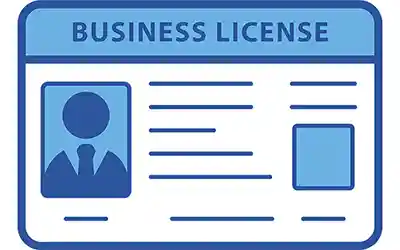Becoming a handyman in Florida involves more than just honing your skills. It requires a clear understanding of the state's licensing requirements and regulations.
In Florida, there's no specific "handyman license." However, there are rules that every handyman must follow. These rules can vary across different counties and cities, making it crucial to understand the local regulations.
Handymen can perform minor repairs and small jobs without a contractor's license. But, for jobs that cost more than $1,000 or involve plumbing, electrical, or HVAC systems, a licensed contractor is usually required.
This guide aims to provide a comprehensive overview of the essential steps, legal considerations, and certifications necessary to operate legally as a handyman in Florida. It's designed for aspiring handymen, general contractors, and other professionals in the home repair and maintenance industry.
By understanding and adhering to these requirements, you can ensure your handyman business in Florida is compliant, professional, and ready for success.
Understanding Florida's Handyman Regulations
Florida does not issue a specific "handyman license." However, the state's general contractor licensing system still impacts handymen. It's essential to know what work you can legally perform without needing a contractor's license.
Handymen in Florida can take on minor repair jobs and small projects, provided they do not exceed certain cost limitations. Generally, if the total cost of a job, including materials and labor, is less than $1,000, you can undertake the work without a contractor's license.
Here are a few quick points to remember:
- Jobs over $1,000 typically require a contractor's license.
- Minor repairs and non-structural work are usually allowed.
- Plumbing, electrical, or HVAC work often needs a licensed professional.
Each county or city in Florida may have its own rules affecting handyman work. It's crucial to familiarize yourself with local regulations to avoid legal pitfalls. Some areas might require a business or occupational license, even if the state doesn’t.
Adhering to these local regulations ensures that your handyman operations are legitimate. This compliance not only avoids fines but also enhances your reputation as a responsible professional within the community.
Licensing vs. Certification: What Handymen Need to Know
It's vital to understand the difference between a handyman and a licensed contractor in Florida. A handyman typically handles smaller, non-structural tasks, whereas licensed contractors take on large-scale construction work. This distinction is crucial for legal compliance.
Without a contractor's license, a handyman is limited to specific tasks. You can handle simple repair jobs and general maintenance. However, anything involving significant renovations or structural changes often requires a contractor's license.

Engaging in work beyond the handyman's legal scope without proper licensing can lead to serious consequences. It may result in hefty fines, legal action, or even damage to your professional reputation. Operating within your legal limits ensures that your business remains safe and sound.
To avoid pitfalls, clearly communicate your licensing status to your clients. Also, remain informed about the boundaries of work permitted under Florida handyman laws. Transparency and knowledge are your best tools for compliance.
Insurance and Liability for Florida Handymen
Liability insurance is crucial for every handyman in Florida. It protects you from potential claims related to damages or injuries that might occur while you work. This coverage provides peace of mind and is often seen as a mark of professionalism.
If you have employees, consider securing workers compensation insurance. This is an important safeguard against workplace injuries, protecting both your team and your business.
Here's a quick list of insurance types to consider:
- General Liability Insurance: Covers claims related to bodily injury or property damage.
- Workers' Compensation Insurance: Required if you have employees, covers work-related injuries.
- Commercial Property Insurance: Protects your equipment and business premises.
Evaluating your insurance needs is a smart step for your handyman business. It not only protects your assets but also reinforces trust with your clients. Being adequately insured boosts your credibility in the competitive Florida market.
Steps to Obtaining a Contractor's License in Florida
Obtaining a contractor's license in Florida involves several key steps. First, meet the state examination and experience requirements. Florida mandates that applicants pass a rigorous state exam to prove their knowledge and skills.
Prospective contractors must also showcase their practical experience in the field. Typically, a certain number of years in relevant work is needed to qualify for a license. This requirement ensures that only those with adequate expertise can offer such services.
Continuing education is vital for maintaining an active license in Florida. This process keeps contractors updated on current trends, regulations, and technical innovations. Staying informed helps ensure compliance and high-quality work.
Consider these essential steps for pursuing a contractor's license:
- Study for and pass the required state examination.
- Verify years of experience in the relevant trade.
- Complete ongoing education to maintain and renew the license.
Securing a contractor's license expands your scope of work. Following these steps not only enhances your skills but also elevates your business prospects in Florida.
Legal and Ethical Considerations for Handymen
Written contracts and estimates for handymen are essential. They protect both parties by clearly outlining expectations, costs, and responsibilities. Transparency about one's licensing status is also crucial when dealing with clients.
Ethical advertising is another vital aspect of a handyman's business. Services offered should align with the legal scope of your abilities. Misleading advertising can lead to penalties and damage your reputation.
Proper record-keeping is indispensable for any handyman operation. Maintaining detailed records of all jobs and financial transactions ensures accountability. This practice helps track business performance and aids in handling potential disputes professionally.
Building Your Handyman Business in Florida
Networking is a cornerstone for any successful handyman business. Building connections with licensed contractors can open up new opportunities. They can refer jobs that are beyond your legal scope or skills.
Effective marketing is crucial. Handymen should establish a strong online presence with accurate service listings. Positive reviews and testimonials enhance trust and credibility among potential clients.
Managing finances is vital for sustainability. Keep detailed records of income and expenses to track your business performance. Using handyman software can streamline this process.
A basic understanding of taxes is also important. Familiarize yourself with self-employment tax rules and make estimated payments to avoid surprises. Consult a tax professional if needed.
Consider creating a checklist for ongoing tasks to help stay organized. This list should include client communication, job scheduling, inventory management, and regular financial reviews. Consistency in these areas can drive business success.
Resources and Further Steps for Florida Handymen
The Florida Construction Industry Licensing Board is a vital resource. It provides guidelines and updates on licensing. Staying informed can help you comply with evolving regulations.
For further support, consider reaching out to the Florida Small Business Development Center (SBDC). They offer advice on business planning and growth strategies tailored for handymen.
Starting your handyman business requires careful planning. Here's a brief checklist to guide you:
- Research local regulations and compliance needs
- Obtain necessary business licenses and insurance
- Develop a marketing strategy and build an online presence
Utilize these resources and checklist elements. They can help set up a robust foundation for your handyman business in Florida.
Conclusion: Ensuring Compliance and Success in the Handyman Industry
Operating as a handyman in Florida involves navigating specific rules and regulations. Understanding the difference between handyman and contractor roles is vital. Knowledge of local laws ensures that your services remain within legal limits.
Compliance goes hand-in-hand with success. Meeting insurance and licensing standards protects your business and builds trust with clients. Proper documentation and transparency enhance your reputation and establish credibility.
Stay proactive by keeping up with changes in Florida handyman laws. Ensuring you adhere to all licensing requirements is crucial. Take steps today to secure a thriving and compliant handyman business.

